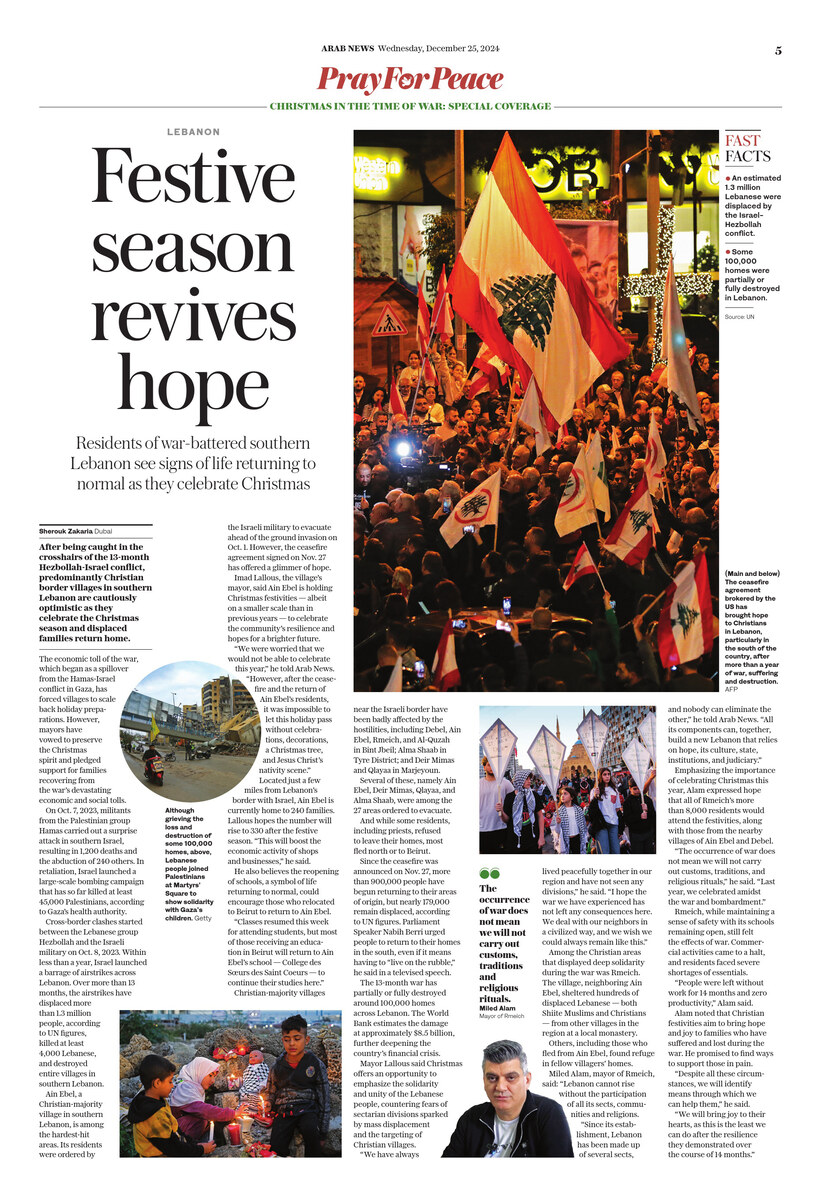DUBAI: After being caught in the crosshairs of the 13-month Hezbollah-Israel conflict, predominantly Christian border villages in southern Lebanon are cautiously optimistic as they celebrate the Christmas season and displaced families return home.
Earlier this month, municipalities adorned the streets of these villages with Christmas lights and decorations, expecting the festive atmosphere and a gradual return to normalcy to encourage more displaced residents to come back.
The economic toll of the war, which began as a spillover from the Hamas-Israel conflict in Gaza, has forced villages to scale back holiday preparations. However, mayors have vowed to preserve the Christmas spirit and pledged support for families recovering from the war’s devastating economic and social tolls.
On Oct. 7, 2023, militants from the Palestinian group Hamas carried out a surprise attack in southern Israel, resulting in 1,200 deaths and the abduction of 240 others. In retaliation, Israel launched a large-scale bombing campaign that has so far killed at least 45,000 Palestinians, according to Gaza’s health authority.
Cross-border clashes started between the Lebanese group Hezbollah and the Israeli military on Oct. 8, 2023. Within less than a year, Israel launched a barrage of airstrikes across Lebanon. Over more than 13 months, the airstrikes have displaced more than 1.3 million people, according to UN figures, killed at least 4,000 Lebanese, and destroyed entire villages in southern Lebanon.
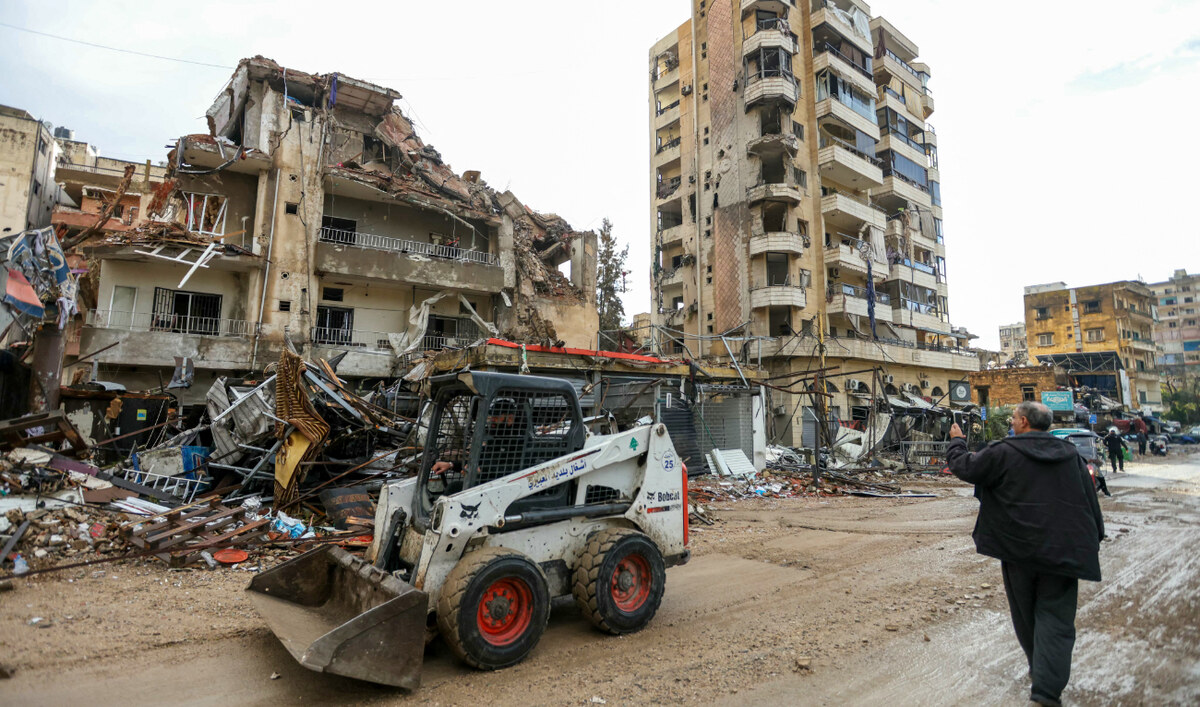
Workers clear the rubble at the site of an overnight Israeli airstrike that targeted the Shiyah neighborhood in Beirut’s southern suburbs on November 26, 2024. (AFP)
Ain Ebel, a Christian-majority village in southern Lebanon, is among the hardest-hit areas. Its residents were ordered by the Israeli military to evacuate ahead of the ground invasion on Oct. 1. However, the ceasefire agreement signed on Nov. 27 has offered a glimmer of hope.
Imad Lallous, the village’s mayor, said Ain Ebel is holding Christmas festivities — albeit on a smaller scale than in previous years — to celebrate the community’s resilience and hopes for a brighter future.
“We were worried that we would not be able to celebrate this year,” he told Arab News. “However, after the ceasefire and the return of Ain Ebel’s residents, it was impossible to let this holiday pass without celebrations, decorations, a Christmas tree, and Jesus Christ’s nativity scene.”
“We are working on restoring the joyful spirit in Ain Ebel,” he added.
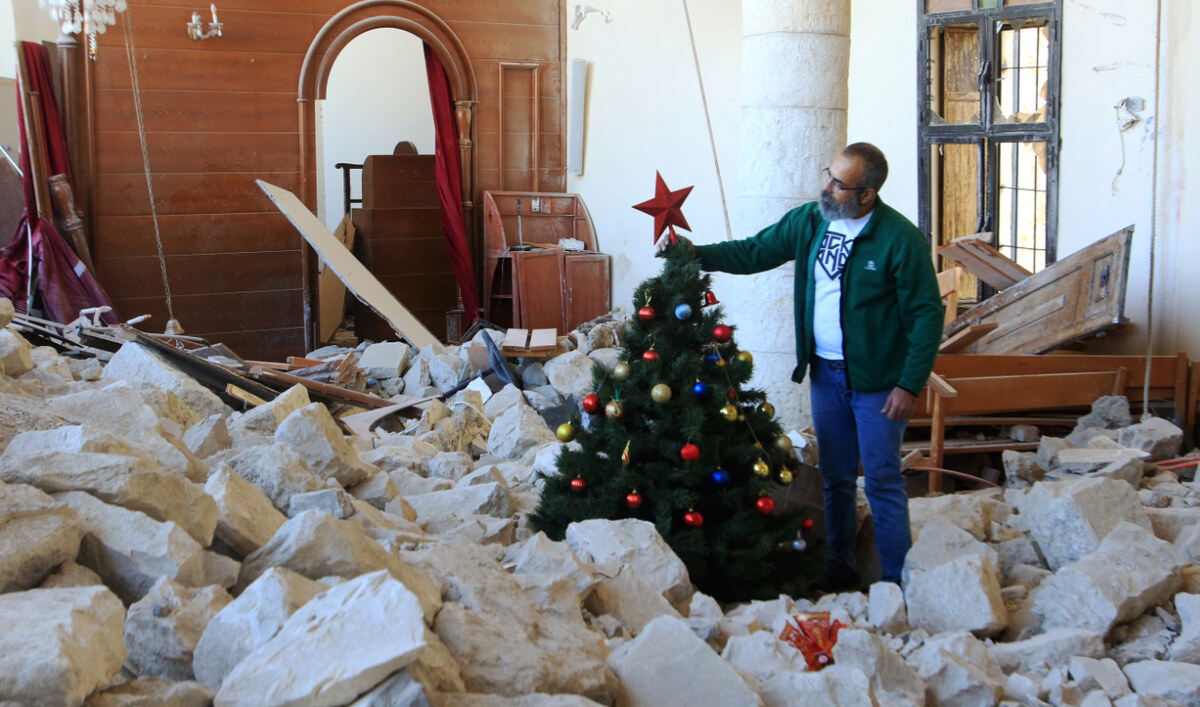
A man sets up a Christmas tree amidst the rubble of the Melkite Church, which hit by an Israeli airstrike on October 9, in the southern Lebanese village of Derdghaya on December 20, 2024. (AFP)
The village, once alive with street celebrations, bustling church squares, and vibrant Christmas markets showcasing local products, has been overshadowed by the economic hardships of war in a country already grappling with a severe financial crisis since 2019.
Lallous called for community solidarity through donations to restore the spirit of Christmas and support families returning to their war-wrecked homes.
“There is serious damage to the houses, and we will see what we can do to help the owners repair or rebuild them,” he said.
“I hope we can celebrate Christmas and other holidays peacefully. I hope we don’t relive wars, destruction and bombardment anymore. I hope no one loses their home and everything they own. I hope this year’s war will be the last in the region.”
Located just a few miles from Lebanon’s border with Israel, Ain Ebel is currently home to 240 families. Lallous hopes the number will rise to 330 after the festive season. “This will boost the economic activity of shops and businesses,” he said.
He also believes the reopening of schools, a symbol of life returning to normal, could encourage those who relocated to Beirut to return to Ain Ebel.
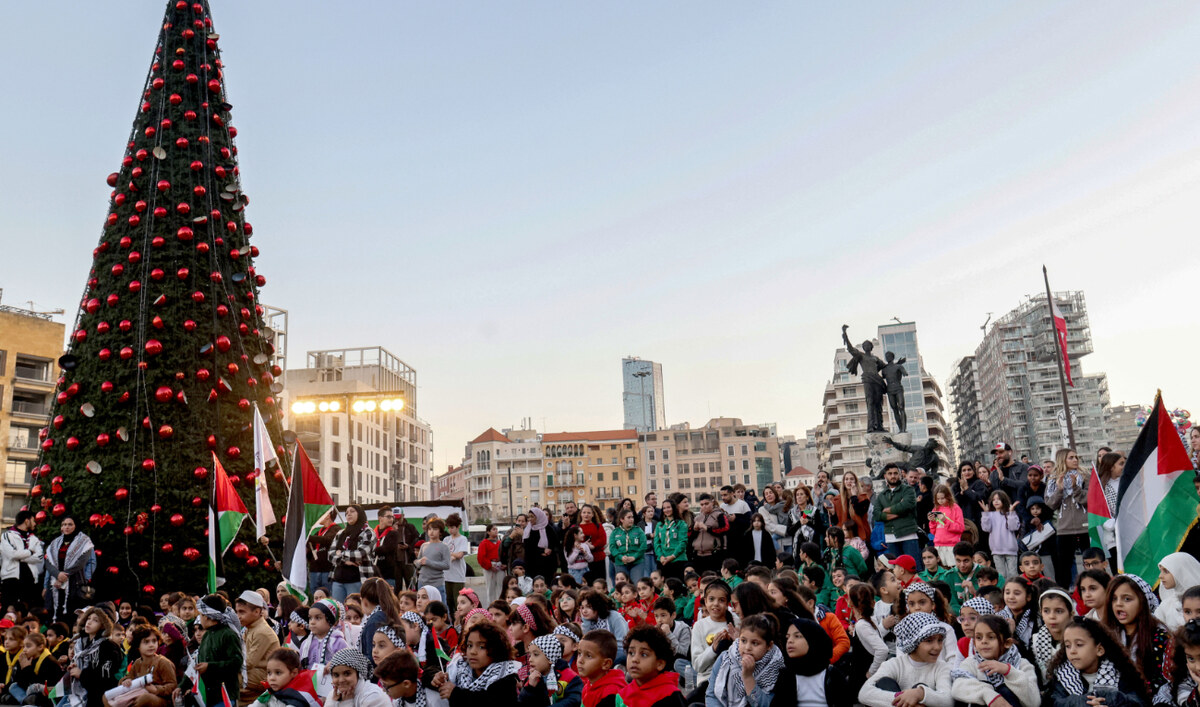
Lebanese and Palestinian children gather in Martyrs Square in central Beirut to send a message of love to the children of Gaza on the occasion of Christmas, on December 26, 2023. (AFP)
“Classes resumed this week for attending students, but most of those receiving an education in Beirut will return to Ain Ebel’s school — College des Sœurs des Saint Coeurs — to continue their studies here.”
Christian-majority villages near the Israeli border have been badly affected by the hostilities, including Debel, Ain Ebel, Rmeich, and Al-Quzah in Bint Jbeil; Alma Shaab in Tyre District; and Deir Mimas and Qlayaa in Marjeyoun.
Several of these, namely Ain Ebel, Deir Mimas, Qlayaa, and Alma Shaab, were among the 27 areas ordered to evacuate.
And while some residents, including priests, refused to leave their homes, most fled north or to Beirut.
Since the ceasefire was announced on Nov. 27, more than 900,000 people have begun returning to their areas of origin, but nearly 179,000 remain displaced, according to UN figures.
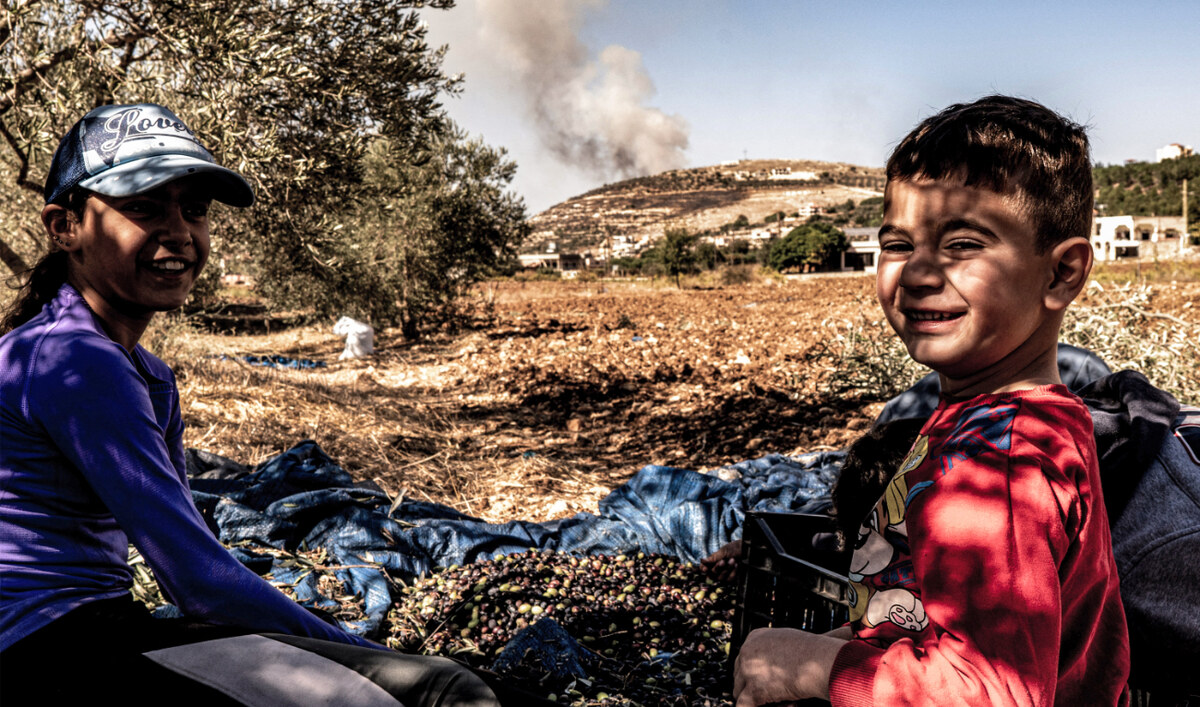
Smoke billows in the background from Israeli bombardment as children pick olives during the harvest season in Rmeich in southern Lebanon on October 23, 2024. (AFP)
Parliament Speaker Nabih Berri urged people to return to their homes in the south, even if it means having to “live on the rubble,” he said in a televised speech.
The 13-month war has partially or fully destroyed around 100,000 homes across Lebanon. The World Bank estimates the damage at approximately $8.5 billion, further deepening the country’s financial crisis.
Despite both Hezbollah and Israel accusing each other of violations, the ceasefire also represents a hopeful step toward a permanent cessation of hostilities and the enforcement of UN Resolution 1701, which called for a demilitarized zone, free of armed personnel except for the Lebanese army.
The US-brokered ceasefire agreement requires Israel to gradually withdraw its forces from southern Lebanon, to be replaced by Lebanese troops over 60 days. Hezbollah must also pull its forces north of the Litani River and dismantle its military infrastructure in the south.
Mayor Lallous said Christmas offers an opportunity to emphasize the solidarity and unity of the Lebanese people, countering fears of sectarian divisions sparked by mass displacement and the targeting of Christian villages.
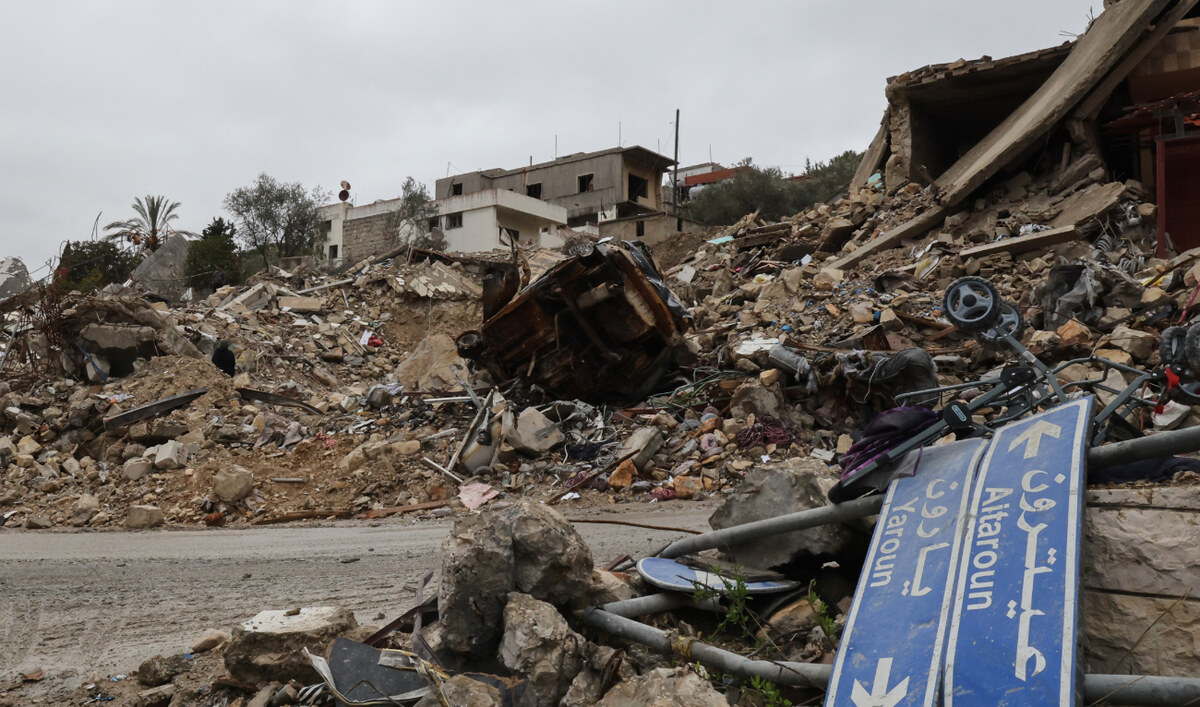
This picture shows destruction in the southern Lebanese village of Bint Jbeil, on November 27, 2024. (AFP)
“We have always lived peacefully together in our region and have not seen any divisions,” he said. “I hope the war we have experienced has not left any consequences here. We deal with our neighbors in a civilized way, and we wish we could always remain like this.”
He added: “We must be convinced that we need to seek our community’s well-being rather than society’s suffering.
“I hope the experience we have gone through will be a lesson for everyone so that we can move toward peace and family and keep our young people here instead of seeing them leave. I hope we won’t have to rebuild our homes in 10-15 years.”
Among the Christian areas that displayed deep solidarity during the war was Rmeich. The village, neighboring Ain Ebel, sheltered hundreds of displaced Lebanese — both Shiite Muslims and Christians — from other villages in the region at a local monastery.
Others, including those who fled from Ain Ebel, found refuge in fellow villagers’ homes.
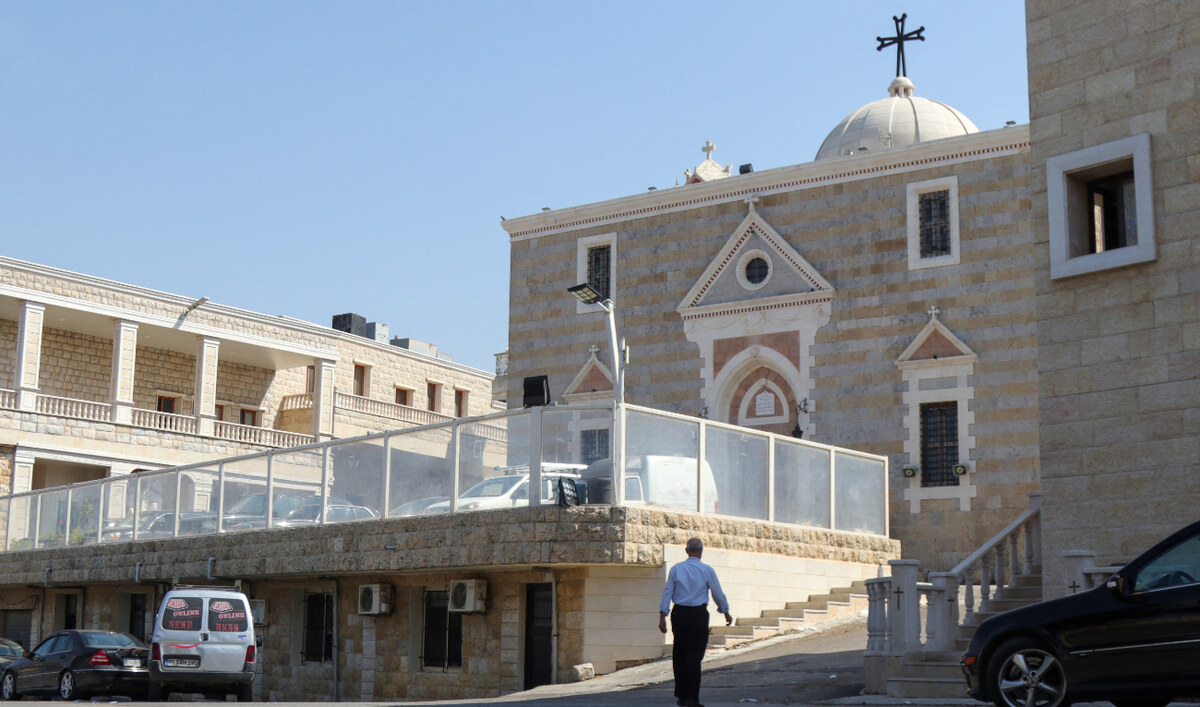
A man walks towards Saint George church in the southern Lebanese Christian village of Qlayaa on October 10, 2024. (AFP)
Miled Alam, mayor of Rmeich, said: “Lebanon cannot rise without the participation of all its sects, communities and religions.
“Since its establishment, Lebanon has been made up of several sects, and nobody can eliminate the other,” he told Arab News. “All its components can, together, build a new Lebanon that relies on hope, its culture, state, institutions, and judiciary.”
Emphasizing the importance of celebrating Christmas this year, Alam expressed hope that all of Rmeich’s more than 8,000 residents would attend the festivities, along with those from the nearby villages of Ain Ebel and Debel.
“The occurrence of war does not mean we will not carry out customs, traditions, and religious rituals,” he said. “Last year, we celebrated amidst the war and bombardment.”
“We also organized an event for the children in the church square, rang the bells, prayed and held masses.”
Rmeich, while maintaining a sense of safety with its schools remaining open, still felt the effects of war. Commercial activities came to a halt, and residents faced severe shortages of food and essential resources.
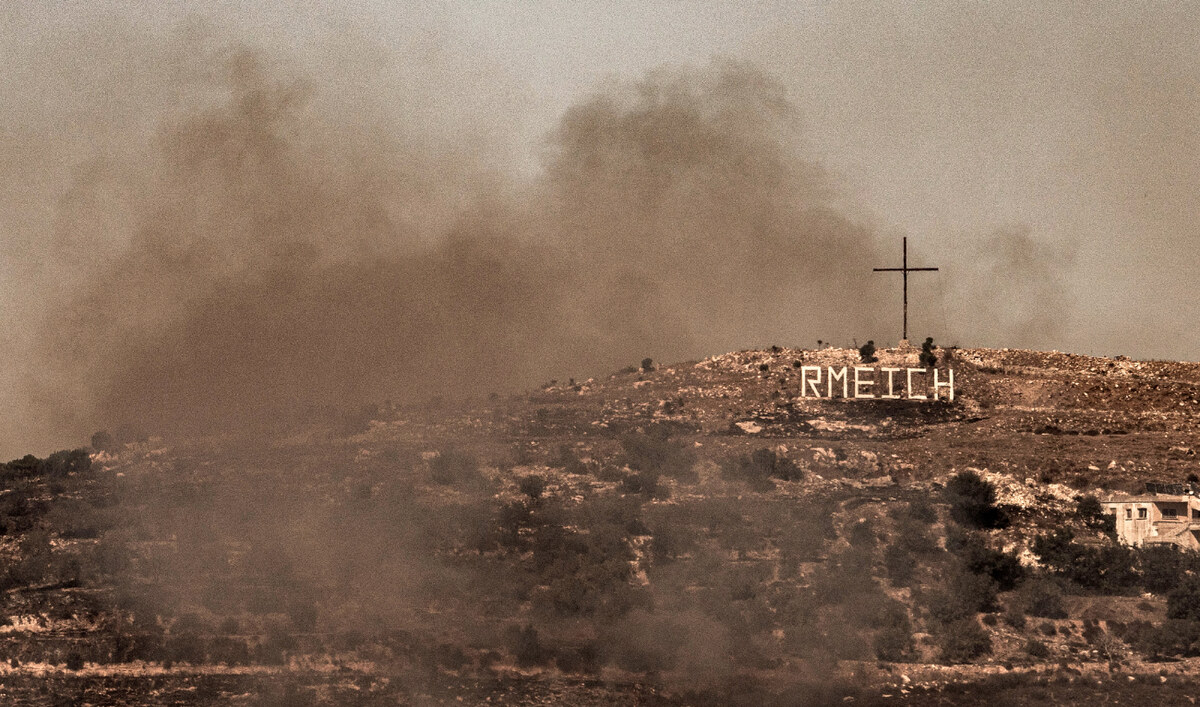
Smoke from an explosion due to Israeli bombardment rises in the hills of Rmeich in southern Lebanon, near the border with Israel, on October 22, 2024. (AFP)
“People were left without work for 14 months and zero productivity. Those who had small sums of money had to spend them,” Alam said.
Rmeich is known for its red-tiled houses, nestled among green hills renowned for tobacco cultivation.
Alam noted that Christian festivities aim to bring hope and joy to families who have suffered and lost during the war. He promised to find ways to support those in pain.
“Despite all these circumstances, we will identify means through which we can help them and stand by them,” he said.
“We will bring joy to their hearts, as this is the least we can do after the resilience they demonstrated over the course of 14 months.”
